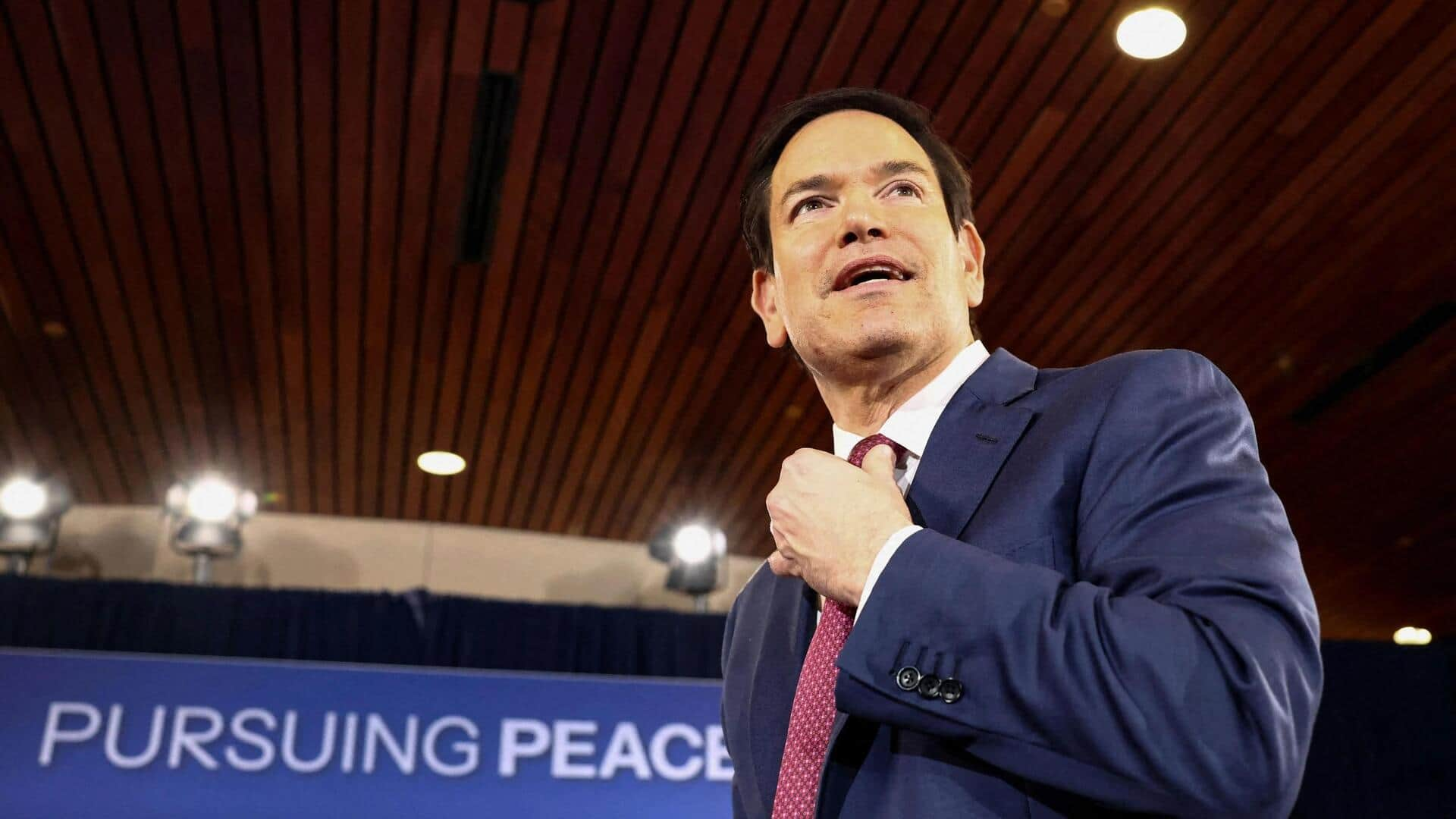
Why US imposed tariffs on India, not China
What's the story
US Secretary of State Marco Rubio has explained why China was not subjected to additional tariffs or sanctions on Russian oil while India was not. The US imposed a 25% tariff on Indian exports due to its continued imports of Russian crude. This move came as part of an effort to pressure Moscow over its actions in Ukraine.
Sanction strategy
Rubio explains potential global oil price impact
Rubio said, "Well, if you look at the oil that's going to China and being refined, a lot of that is then being sold back into Europe." "If you put secondary sanctions on a country...let's say you were to go after the oil sales of Russian oil to China... well, China just refines that oil," he said.
European response
European countries express concern over possible sanctions
Rubio also said that European countries expressed concern over possible sanctions against China. He said these countries are worried about the impact on global oil prices. "We have heard, when you talk about the Senate bill that was being proposed—where there was a hundred per cent tariff on China and India—we did hear from a number of European countries—not in press releases, but we heard from them - some concern about what that could mean,"
Cautious stance
Trump cautious in dealing with Beijing
President Donald Trump has also been careful in dealing with Beijing on this issue. After his meeting with Russian President Vladimir Putin, he said fresh sanctions on China could wait "two or three weeks." This comes as Trump and Chinese President Xi Jinping are engaged in delicate trade negotiations aimed at reducing import duties and improving market access.
Discontent in India
India frustrated over US's decision
Meanwhile, India has been unhappy with the US's decision to impose tariffs on its exports. Indian officials are frustrated that China, which is the largest buyer of Russian oil, has not been sanctioned. Critics argue that this decision shows how strategic and economic interests often take precedence over principles in Washington's policies.